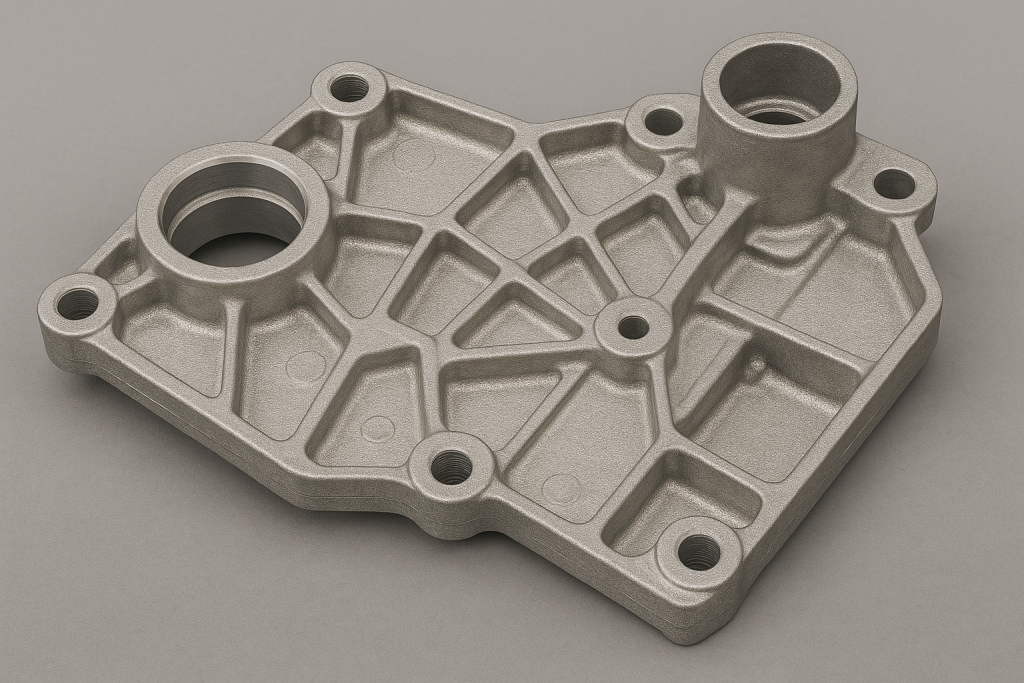ADC12 vs. Other Alloys: Choosing the Best Alu Cast Metal for Your Application
When selecting the right alu cast metal for your die-casting projects, understanding the properties and performance of different alloys is key. ADC12 aluminum is a widely-used alloy, but how does it compare to others like A380, A356, and LM6? This guide will help you choose the ideal aluminum alloy for your specific needs, whether you’re working on automotive parts, electronics, or structural components.
1. Key Properties of ADC12 Aluminum
ADC12 aluminum is a popular alu cast metal due to its excellent castability, mechanical properties, and versatility in various applications. Below are some of the key properties of ADC12:
Key Characteristics of ADC12 Aluminum
- Castability: ADC12 has excellent fluidity, which allows it to fill molds easily and reduce defects in casting.
- Mechanical Strength: ADC12 provides moderate strength and is suitable for non-load bearing components like covers and enclosures.
- Corrosion Resistance: It offers good corrosion resistance, especially in automotive and industrial environments.
- Thermal Conductivity: ADC12 is effective in dissipating heat, making it ideal for use in electronic housings and heat sinks.
- Cost-Effectiveness: Due to its efficiency in casting, ADC12 is a cost-effective choice for mass production.
Applications of ADC12 Aluminum
- Automotive Parts: Transmission cases, brackets, engine components.
- Electronics: Heat sinks, housings for electrical devices, and enclosures.
- Industrial Equipment: Motor casings, pump components, and housing for machinery.
2. Comparing ADC12 with Other Cast Al Alloys
While ADC12 aluminum offers excellent properties, it’s important to consider other alloys like A380, A356, and LM6 for specific applications. Below is a comparison of ADC12 with some common aluminum alloys used in casting.
Table: Comparison of ADC12 with Other Cast Al Alloys
| Alloy | Strength & Durability | Corrosion Resistance | Thermal Conductivity | Castability | Best For |
|---|---|---|---|---|---|
| ADC12 | Moderate | High | High | Excellent | Automotive, electronics, general casting |
| A380 | High | Moderate | Moderate | Good | High-strength components, aerospace |
| A356 | High | High | Very High | Moderate | Structural applications, marine environments |
| LM6 | Low to Moderate | Very High | High | Moderate | Marine, food industry, chemical applications |
| 6061 | Very High | High | Moderate | Poor | Precision-machined parts, aerospace |
3. Real-Life Case Studies: Choosing the Right Alloy
Case Study 1: Automotive Component Selection – ADC12 vs. A380
A major automotive manufacturer required a die-cast metal for engine brackets. They compared ADC12 and A380:
- ADC12 provided better castability and corrosion resistance, making it ideal for non-load-bearing components.
- A380, however, offered higher strength, which was essential for the load-bearing brackets.
The company chose A380 for the load-bearing parts and ADC12 for non-load-bearing components, ensuring a balance between strength and cost-effectiveness.
Case Study 2: Electronics Housing – ADC12 vs. A356
A manufacturer of LED lighting enclosures required a material with good thermal conductivity and corrosion resistance for heat dissipation. They compared ADC12 and A356:
- ADC12 was chosen due to its excellent thermal conductivity and cost-effectiveness for large-scale production.
- A356 was a strong contender but not as cost-efficient as ADC12 for this particular application.
The company was able to reduce production costs by 20% and achieve better thermal management with ADC12.
4. How to Choose the Right Aluminum Cast Alloy
When choosing between ADC12 and other alloys, there are several key factors to consider based on your specific requirements:
1. Strength Requirements
- For high-strength applications, like aerospace components or structural parts, alloys like A380 or A356 are more suitable.
- For non-load-bearing components, ADC12 is a cost-effective choice with excellent castability and corrosion resistance.
2. Corrosion Resistance
- For marine or outdoor applications, A356 or LM6 alloys offer superior corrosion resistance, making them ideal for parts exposed to harsh environments.
- ADC12 also offers good corrosion resistance, making it suitable for automotive and industrial applications.
3. Thermal Conductivity
- For components like electronic housings or heat sinks, ADC12 and A356 provide excellent thermal conductivity, ensuring efficient heat dissipation.
- A380 is not as effective in terms of heat dissipation as ADC12.
4. Castability and Cost
- ADC12 offers excellent castability, reducing production time and costs, which is ideal for large-scale manufacturing.
- For precision-machined parts, 6061 cast aluminum may be a better choice, though it has lower castability.
5. Conclusion: Which Alu Cast Metal Should You Choose?
Choosing the right alu cast metal involves balancing strength, cost, corrosion resistance, and thermal conductivity based on your specific application needs. ADC12 aluminum is a versatile and cost-effective alloy, ideal for many automotive, industrial, and electronic applications. However, for higher strength or marine environments, alloys like A380, A356, or LM6 may be more appropriate.
By understanding the differences between ADC12 vs. other alloys, you can ensure your products perform optimally while keeping costs under control.
Related Blogs:
-
Aluminum Machining: processes, benefits, methods,features
-
Precision A356 Investment Casting Manufacturer
-
ADC12 Properties: Key Material Insights for Optimal Aluminium ADC12 Applications
-
ADC12 Die Casting: Optimizing Product Design with High-Quality Die Cast Aluminum Material
-
A380 Aluminum: High-Performance Alloy for Precision Casting

